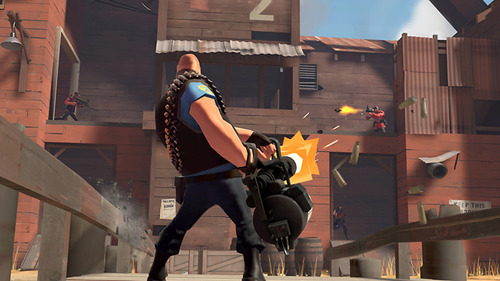Sponsored By

Featured Blog | This community-written post highlights the best of what the game industry has to offer. Read more like it on the Game Developer Blogs.
Games that let you write your own story and how Counter-Strike gives you an audience
Online multiplayer games such as TF2 or CS don't try to tell you a story but they let you make one with the people you play against/with. Amongst all of them though CS always struck me as the most theatrical of the lot because it gives you an audience.
8 Min Read


Read more about:
Featured BlogsAbout the Author(s)
Daily news, dev blogs, and stories from Game Developer straight to your inbox
You May Also Like













